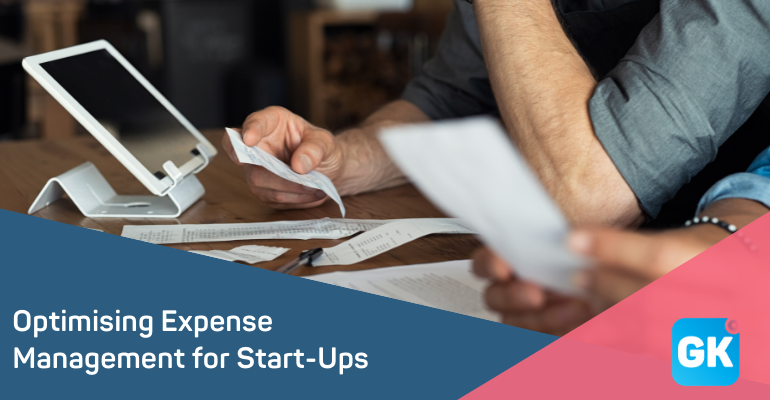Tips to Optimise Expense Management for Start-Ups

Tips to Optimise Expense Management for Start-Ups
All businesses should have proper expense tracking and reconciliation in place. However, many start-up businesses often look only at their overall outgoings each month. This can lead to spending more than the business can afford, calculating cash on hand and cash zero date incorrectly, and not maintaining audit-ready financials.
Proper Expense Management Must Include the Following
- Clear expense policies.
- Recording every business expense.
- Reconciling bank statements with books.
- Storing receipts.
- Reimbursing employees.
- Generating monthly expense reports.
Optimising Expense Management for Start-Ups
We have outlined the top tips to achieve better expense management for start-ups, to ensure you have a complete view of your business’ outings.
Begin Proper Expense Management from the Beginning
Start-up founders should begin tracking expenses from the beginning of their business journey. As a business grows, it becomes more time consuming and complex to retrospectively organise expenses for past months or years. Investing time to manage expenses from the beginning will save you time in the future. Defining clear company policies in relation to expenses is important for business. It is important that employees understand which types of expenses are permitted and the processes in relation to how they should document expenses.
Manage your Expenses with Software
Businesses should begin using expense management software to record expense data, generate expense reports and process expenses. Accounting software such as Xero, supports integrations with expense management software. This allows you to automatically sync and categories expense data, helping you streamline the expense management system.
Categorise Your Expenses
Start-up businesses should categories expenses, including fixed and variable costs, to classify all expenses. Looking at only total expenses each month does not give you an insight into how your business is actually performing. It is important to sort expenses into categories so you can understand how much it costs your business to produce the goods and services it sells (COGS). When COGS exceeds the revenue, the goods are generating, a business is not sustainable.
Limit Overspending using Granular Expense Tracking
Recording expenses in a granular way allows you to identify unnecessary spending. Expenses may appear reasonable, however, when your break down expenses, you may notice areas of high spend and little return on investment. For example, breaking expenses to reveal each salespersons’ expenses, you may identify some employees are spending more than others but generating less sales. You may also be able to identify patterns in product expenses and benefit from enterprise discounts.
Gallagher Keane Chartered Accountants
Gallagher Keane maintain their entire practise using cloud accounting software. Correctly tracking expenses and managing the expense management processes can be time consuming. Using cloud accounting software allows your business to streamline their expense tracking by building expense reports, tracking invoices, updating books and issuing reimbursements. If you are interested in finding out more about Gallagher Keane’s online accounting services, why not book a no-obligation call with us.


